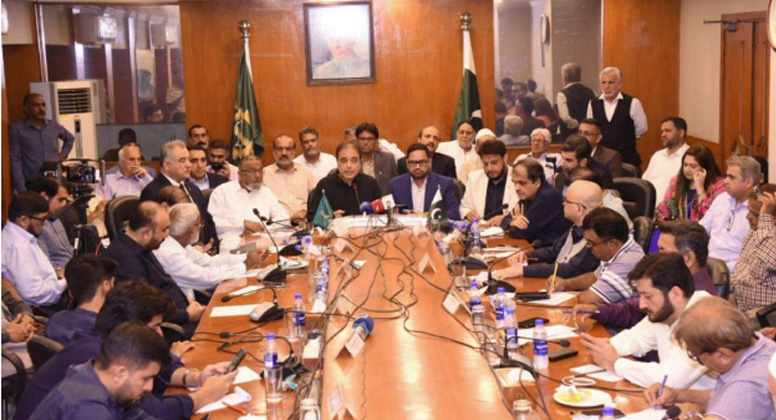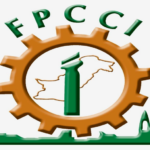
FPCCI Rejects Excessive Authorities Given to Tax Officials Atif Ikram Sheikh, President FPCCI
Karachi: Mr. Atif Ikram Sheikh, President FPCCI, has informed that FPCCI rejects the
excessive, overly-subjective and harassment-prone authorities given to the tax officials in the
Federal Budget 2025 – 26. We also reject the authority of the taxmen enabling them to withdraw
from the business accounts and raid the business premises without a notice, he added.
Mr. Atif Ikram Sheikh demanded that the federal government must take back these harsh
measures, before the federal budget is passed to have the confidence of the business community.
He added that the tax collection target can only be achieved if industrialists and exporters are
taken onboard through a comprehensive consultative process. However, he lamented, budget
misses the measures needed to enable the business community to materialize the vision of PM to
achieve export-led growth.
FPCCI Chief elaborated that it is an established fact and practice globally that the more a tax
collector is allowed to intervene or interact with the taxpayer, the more it is likely to undermine
the principles of fairness, transparency and impartiality due to increased role of human-to-human
interaction and human judgement becomes a nuisance.
Mr. Saquib Fayyaz Magoon, SVP FPCCI, demanded that fixed tax regime (FTR) should be
restored for exporters in its original form and shape for a long-term duration to bring clarity,
certainty and consistency in the taxation policies. We can only attract FDI and domestic
investment, if we remain competitive as a country, he added.
Mr. Saquib Fayyaz Magoon highlighted that broadening Export Facilitation Scheme (EFS)
should include local manufacturers in its scope; otherwise, supply line disruptions and lack of
competitiveness in the regional and international markets for Pakistani products.
SVP FPCCI also expressed his resentment that FPCCI’s recommendation to bring special
incentives packages for the IT & ITeS; Mines & Minerals and Fishing industries in the Federal
Budget 2025 – 26 has been ignored. These are high-growth areas and can grow exponentially, he
added.
Mr. Asif Sakhi, VP FPCCI, maintained that the tax authorities should stop accusing the business
community for tax evasion or theft; and, instead, transform themselves into a facilitative
machinery through amicable and respectful behavior toward the taxpayers.
Mr. Aman Paracha, VP FPCCI, proposed that a high-powered fact-finding committee should be
formed to find out the root cause of FBR’s inability to achieve FY25’s tax collection target.
Mr. Nasir Khan, VP FPCCI, highlighted that many businessmen have already left the country for
more lucrative and stable investment, trade and industrial destinations; and, the rest are also
finding it very difficult to keep running their factories without incurring losses.
Another concern of FPCCI outlined was the restriction imposed on Special Economic Zones
(SEZs) developers for a period of 10 years or by tax year 2035 – whichever comes first. On
which FPCCI maintained that it takes at least 2 – 3 years to establish an industry; and, it will be
much less than 10 years when the business actually starts producing or generating revenues.
Therefore, FPCCI demands, this period should be enhanced to at least 20 years or ideally to 30
years in order to attract Foreign Direct Investment (FDI) or domestic investments in the SEZs.

